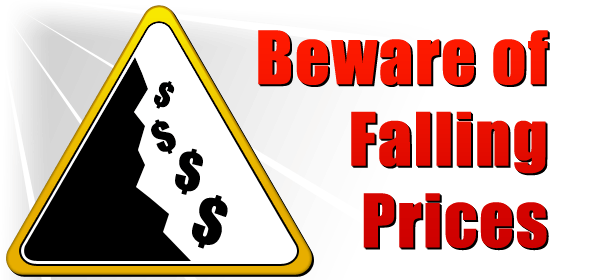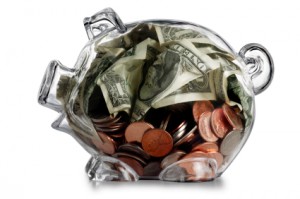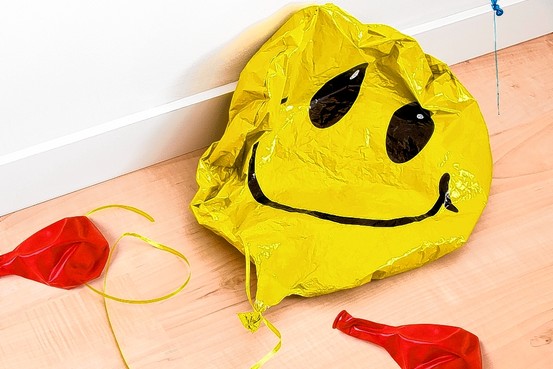This episode of Crash Course was a major one: Macroeconomics. This is the big picture of economics, and as the hosts accurately mention in the beginning of the video:
If you ask three economists the same question, you are likely to get three different answers. “But how,” you ask, “can the dismal science be so subjective? Well, economics is not a traditional science because it’s nearly impossible to control all the different variables like all the social sciences.
Way ahead of you, Crash Course. Economics is not like physics, and the lack of variable controls frustrates everyone.
While Crash Course correctly notes that economics is pretty subjective, they do not hesitate to claim some debatable economic theories as fact.
Deflation
When prices fall, everyone is happy, except some economists (including those at Crash Course):
Deflation seems like it would be a good thing, but most economists see falling prices as a bad thing. Falling prices actually discourage people from spending since they might expect prices to fall more in the future.
Less spending in the economy means GDP is going to decrease and unemployment is going to increase, and that becomes a vicious cycle. So severe recessions are actually accompanied by deflation because the demand for goods and services falls.
There’s a lot to unpack here, so let’s go through a couple main points they make:

1. Falling prices makes people expect prices to fall more in the future
When a consumer sees a lower price, he might think three things: 1. The price is low and will continue to get lower 2. The price is low and will stay that way, and 3. The price is low only temporarily, and the price will increase in the future.
The fear of deflation relies on only option 1 being true, and the other two options not being true. While I can see option 1 as being a possibility, I have yet to hear an explanation of why the other two options could not also occur. People perceive falling prices in different ways; why do we assume that everyone will assume that prices will continue to fall? If the economy is an enormous complexity to most people, why do we assume they they will be able to accurately predict the future economy? Professional economists can’t even do that!
But let’s even say that number one is true, and people will expect prices to fall.
2. When people expect prices to fall, they will not buy products now
Every year, there are a number of products that people expect to get cheaper in the future:
How much will the new iPhone cost when it is released next month, and how much do you think it will cost a year from now? Does this stop people from getting the iPhone as soon as it comes out?
Clothing companies release a new season’s collection, and nearly all of the clothes will be on sale within the next two to three months. Does that stop people from buying the clothes as soon as they come out?
People still buy products, even when it’s a near-certainty that it will be cheaper in a couple months. Some people do hold out for prices to fall, but does this collapse the industry when new products are released?

3. If people reduce spending, the economy will suffer
If people decide to put money in the bank and wait, instead of spending money now, what happens? Certain industries do suffer, namely those in the business of providing consumer goods as opposed to capital goods. Simply stated, consumer goods are the stuff you buy to enjoy, and capital goods are the goods that are used to make consumer goods, such as machinery to make products, buildings to house companies, etc.
So when you decide to save, consumer goods places like Amazon, Disney World, and your favorite Italian restaurant will suffer, but does that mean that the entire economy will do poorly?
Where Does Saved Money Go?
When you put money in the bank, it doesn’t just sit there. Banks lend out their money to people and business who eagerly want to spend that money for themselves (to buy a house, for example) or business. Your money in the bank actually ends up going to those who are the most eager to spend it (and are likely to pay the bank back).
So saving does not weaken the economy; it merely shifts the economy toward capital goods instead of consumer goods. Wal-Mart may contract, but steel and construction companies will prosper, and jobs will move from the former to the latter.
Less overall spending is generally an effect of a bad economy, not the cause. People being laid off have both less to spend and less to save, but it is not their original saving that caused the economy to bust.
Nonetheless, there are times when there is high unemployment, and businesses cut jobs without other jobs opening in different parts of the economy. If less spending doesn’t cause the economy to weaken, then something else must be the cause. We will get to that when we look at Crash Course’s explanation of the Business Cycle.
